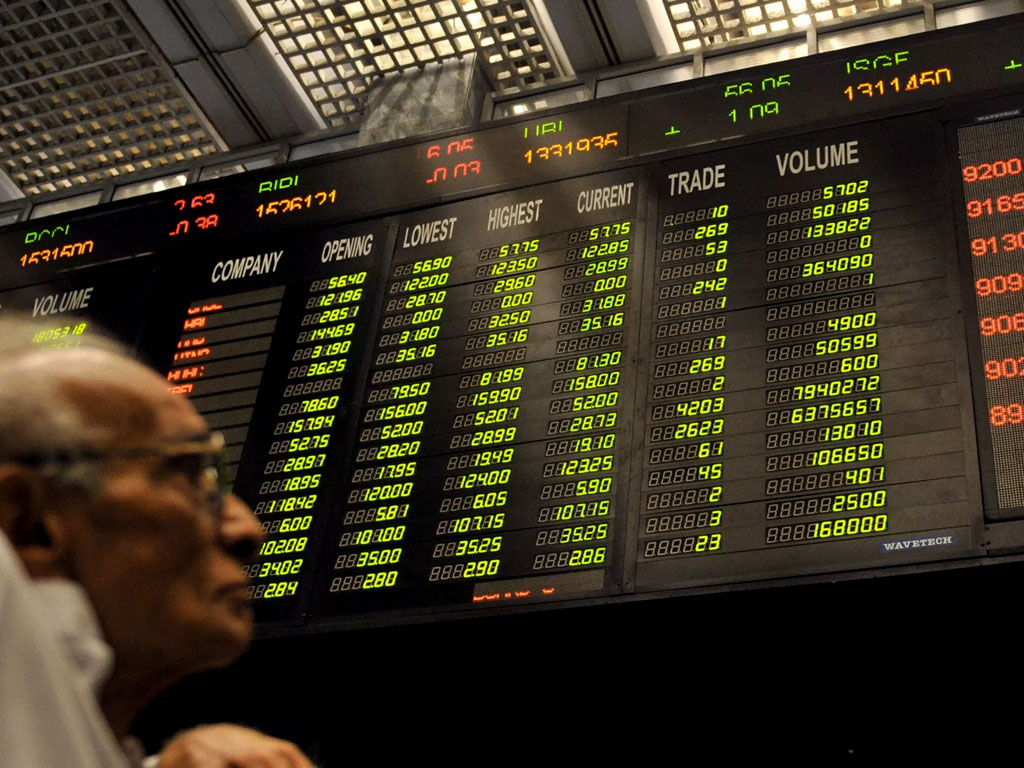
Stock markets around the world reflect a constant struggle between fear and hope. Pakistan Stock Exchange (PSX) is no exception, either. Recent movement at the PSX conveys the perception that the country's economy is fragile. For some, it also reflects the fears that Pakistan's current economic managers may not be able to deliver growth in the foreseeable future.
While the uncertainty over to-go-or-not-go to the IMF is finally over, investors seem to be unsure about the programme conditions, even though many of the prior actions - interest rate hike, rupee depreciation, rationalisation of utility prices - have already been taken by the government. The outlook for Pakistan's economic growth for the next two years is poor: both multilaterals and independent economic experts agree that a gruelling uphill battle lies ahead. In an interview with Business Recorder in August 2018, the then senior advisor to the IMF Executive Board, Dr Ehtisham Ahmad, categorically said "Pakistan is going through a worse-than-2008 economic crisis".
Reflecting these realities, the benchmark PSX slipped to 36579 points last week, its lowest since June 1, 2016, and down 31 percent from its record high of 52876 points in May 2017. But this is not some new found weakness to be solely attributed to the incumbent government. By the end of June 2018, or about two months before the PTI took charge, the index had already shaved off 21 percent from its May 2017 peak. Clearly, KSE-100's fall has been a long time coming, which has been made worse by inexplicable, infrequent but high-impact selling pressure in certain illiquid stocks that drive the index lower just when the market is trying to find what stock traders call 'technical support'. The regulator would do well to be on a look out for any manipulative behaviour that may exacerbate the current market situation.
With the index hitting a three-year low, certain market players are now trying to balance their fears with hopes of a bailout. Although, it is the solemn duty of the state to safeguard life and property of its citizens, that argument cannot be advanced in current circumstances.
It should be clear that the recent fall in benchmark index does not constitute a stock market crash; it is a gradual and consistent bear spell since the index touched its all-time peak in May 2017, reflecting weak economic prospects. This long window provided ample opportunities to cautious investors to exit safely from the market in keeping with the time-tested maxim that 'every rise has its fall', and vice versa. It is because of this very reason that many investors have been moving away from stocks to money market and fixed income instruments. The ongoing bear spell is also very different from the famous 2005 crash, when certain brokers had created systemic risks by providing unsustainable in-house margin financing to clients, many of whom were rookie investors blinded by the shine of the then seemingly eternal rise in stocks.
Halting the natural movement of the market through direct or indirect state support will also be a politically risky move. Choosing to bailout stock market savers, small or big, at a time when households with zero or very small savings are facing rising cost of living amid risks of joblessness, will not be judged fairly either, especially when the political temperature is high. Besides, the country's capital market is not exactly a hotbed for raising corporate finances that it must be provided state support for smooth functioning of the economy, whereas the recent success of Interloop Limited's public offering proves that if the companies offer value, investors will seek it even in the heart of a bear spell.
Times like these also warrant a reminder that investors should rely on their own economic and financial reasoning as well. Brokers are known for their rosy reports that blow investors' minds, but sometimes their purses too. Investors ought to be cognizant of the inherent bullish bias that marks the sell-side across the globe. Times like these also demand that the industry and its regulator join hands to rethink the brokerage model so brokers have adequate incentives to operate as investment managers across asset classes instead of relying only on trade commission income.
Pakistan's capital market cannot claim to contribute towards capital formation and economic development of the country with only about 50,000 active retail investors, and less than 0.3 million registered investors in a country of 200 million plus, of which at least about 80 million are estimated to form the middle class. This in part, as a 2015-16 joint Business Recorder-Gallup Pakistan nationally representative poll showed, is because about 43 percent of Pakistanis do not even know about investment options in the stock market, whereas nearly a quarter perceive it to be gambling.
